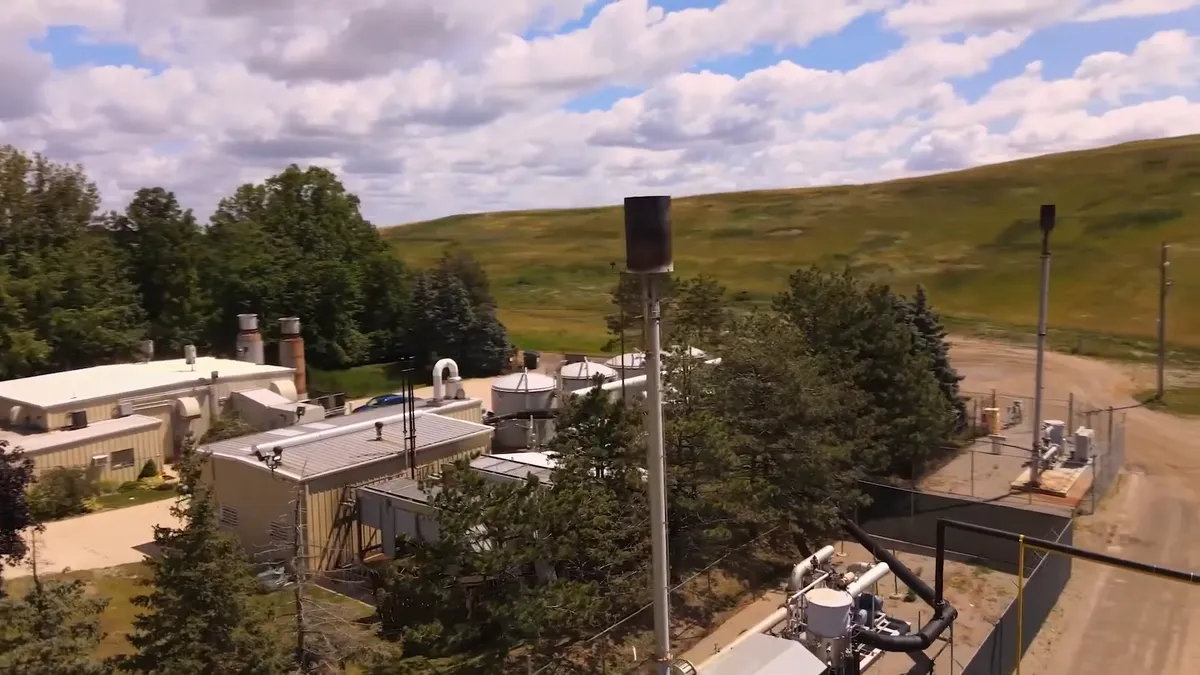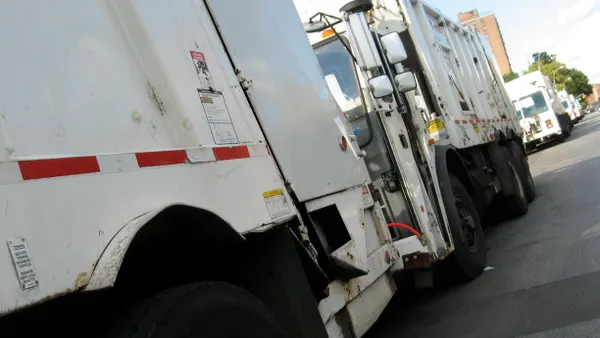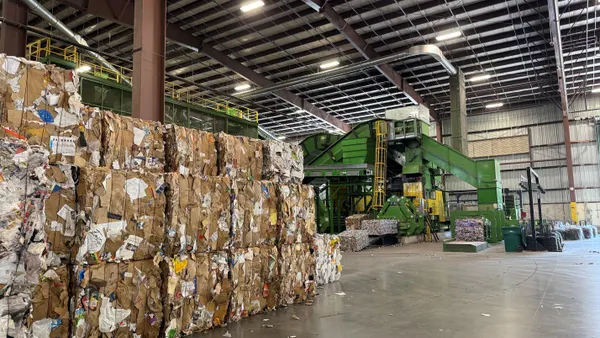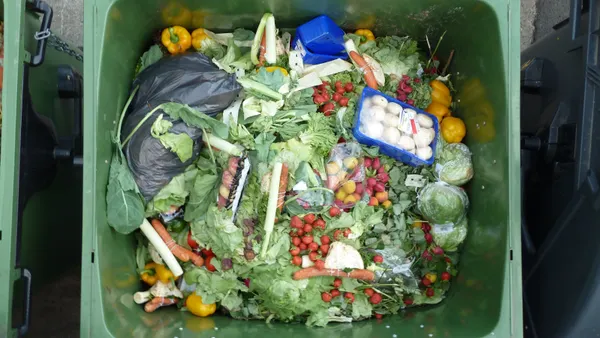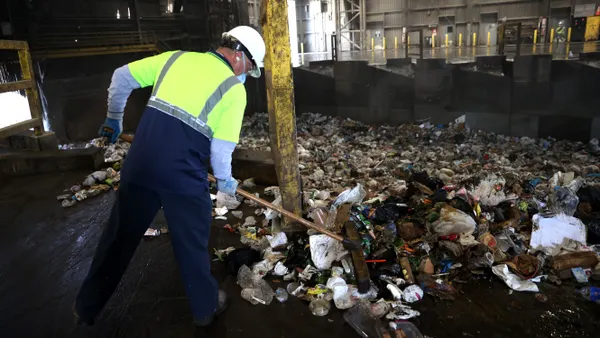Dive Brief:
- Advocacy group Full Circle Future is urging Michigan regulators to incentivize landfill methane reduction by requiring landfill gas facilities to meet a high standard if they want to produce lucrative renewable energy credits.
- In a news release last week, the group argued Michigan could cut landfill methane emissions by nearly half in 25 years if it required landfills to install gas collection wells closer together, add automated pressure control to address leaks, use advanced monitoring technology and adopt other best practices already being considered in other states.
- The release comes as Michigan begins rolling out an updated renewable portfolio standard that is meant to include some landfill gas collection systems. But regulators have yet to release language about how the systems can qualify nearly two years after the update was signed into law.
Dive Insight:
Michigan's landfill infrastructure is significant, with 60 MSW landfills receiving more than 24 million tons of waste last fiscal year.
The state is also a net importer of waste. Last year, its landfills received about 3.5 million tons of waste from Canada, about 14% of all the waste landfilled in Michigan. Other U.S. states sent a further 1 million tons to Michigan’s landfills, about 4% of the state’s total landfilled waste, according to Michigan’s annual landfill report.
Full Circle Future spun off from Industrious Labs earlier this year and advocates for more stringent landfill gas policies, especially in states like Colorado and California that are in the process of updating their rules.
The group estimates about one in three Michigan residents live within five miles of a landfill. They say requiring tighter controls on landfill gas could lead to positive climate and public health impacts for nearby communities, according to the group.
“These communities face daily exposure to the odors, pollution, and risks that come with living next door to a poorly controlled landfill, which emits methane. These sites aren’t tucked away in remote corners; they’re embedded in communities, near schools, homes, and businesses,” the group noted in its release.
Michigan passed a renewable portfolio standard law in 2008 requiring utilities to obtain renewable energy as part of their overall portfolio. That rule was updated by a law in 2023, which required utilities to obtain 50% renewable energy by 2030, and reach 100% clean energy by 2040. They were also required to submit their renewable energy plans earlier this year.
The 2023 law allowed "landfill gas recovery and electricity generation facility located in a landfill whose operator employs best practices for methane gas collection and control and emissions monitoring" to count as a renewable energy system for the state's standard. But such facilities needed to follow "best practices” as determined by the Department of Environment, Great Lakes, and Energy.
So far, the agency has yet to release any kind of guidance on what those best practices should look like. In a statement, a spokesperson told Waste Dive the agency is "currently evaluating options on how to accomplish that goal," but declined to provide a specific timeline.
"We are taking a thoughtful approach that will be helpful for all of Michigan," said Public Information Officer Josef Greenberg Stephens.
The uncertainty has caused consternation for at least one utility. Consumers Energy Corp. has faced scrutiny from the Michigan Public Services Commission over its renewable energy portfolio. The utility has several landfill gas contracts, including at multiple WM landfills throughout Michigan and a closed landfill owned by Republic Services in Lenawee County.
In September, the commission ruled that any new power purchase agreements involving landfill gas would need to follow EGLE's best practices language. It urged both the utility and environmental groups criticizing Consumers Energy to obtain clear guidance on best practices from EGLE.



